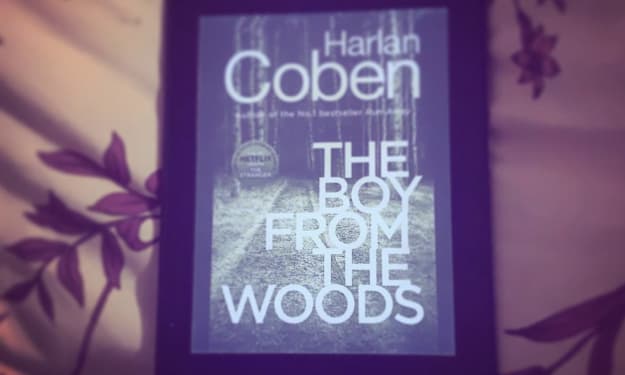
Film is an industry that has been going on for well over one hundred years now with studios such as MGM, Universal, Columbia Pictures, THX, Pixar Animation and Disney becoming some of the world's most well-known names of production companies and distributors all over the world. With this, actors and actresses, directors and producers have sumounted increasing amounts of fame and success for their talents. But the real question over the last ten to fifteen years is whether nepotism is destroying the chance for real talent to keep shining through as second generation rich kids of Hollywood parents get roles and opportunities over hard working, talented people.
What is nepotism in film?

Nepotism in film is where a great director, actor, producer etc. has a child who is then set up for life in the industry and does not therefore require talents or hard-work to get the jobs and fame they need to further their 'career'. Through this, we are getting people working in the industry who don't have any real talent and put very little work in just because this is what they were born into and therefore feel they deserve.
For the average, less known person who is not born into fame or money, this endeavour is far more difficult and even though they may be more talented and more hard-working, they may get shunned away in favour of the former type of person who has been born to fame and money. Slowly, this will filter this normal person out of the system of movies and thus, the cycle begins again with a different set of people on a different film. What does this lead to? Filtering out of true talent in favour of famous names.
This is not always the case, for example: the writer Dominic Holland is the father of actor Tom Holland who has an incredible amount of talent although he was born into a family that was already mildly famous and had a lot of money. Tom Holland is a wonderful young talent who is capable of many things and works extremely hard.
On getting roles because of the famous name

Deciding to make it on his own, Nicolas Cage famously disassociated himself from his own dynasty - the Coppolas - by changing his last name to 'Cage'. This is a prime example of anti-nepotism. But many have used their names to their advantage obviously, in order to get roles which, in my humble opinion, would have been done better if the position was open to more types of actors and actresses. Here are some examples of actors who are not considered very good at acting, but get by on being the children of other very famous names:
- Lily Collins, daughter of Phil Collins
- Kate Hudson, daughter of Goldie Hawn
- Dakota Johnson, daughter of Melanie Griffith
- Chris Pine, son of Robert Pine
- Gwyneth Paltrow, daughter of Blythe Danner
- Margaret Qualley, daughter of Andie MacDowell
- Zoe Kravitz, daughter of Lenny Kravitz
- Drew Barrymore, part of the Barrymore Dynasty
- Jaden and Willow Smith, the children of Will and Jada Pinkett Smith
These are just examples of some and are by no means all of them that there are out there - just keep looking!
On getting roles because of being born into money

As British folk may know more about, upper-middle class people tend to become big-time actors at a faster rate than working class people. Being from Britain myself, I have seen the nepotism of money and power which litters the acting world. Now, this does not by any means state that the acting of these people is not very good, but instead it opens our eyes to the 'why' of the argument.
Why is it that upper-middle class people tend to populate the British Acting world more than any other class of people?
This is mainly because of the money and time required in making a name in acting plus the requirement to study stay and study Shakespeare with the intent of keeping within the tradition of British theatre.

Many upper-middle class British actors started off in theatre and this was mainly because their parents had money to send them to out-of-school acting classes, their parents had time to take their child to watch plays but is also mostly because the child themselves would be able to live in places like Central London and the West End completely free of rent as the parents would be paying for it. This puts the child at a massively high advantage in comparison to others.
Working class actors do exist in Britain, but we also have to notice how much more knowledgeable they are at the actual acting process and more interesting approach to work ethic that they have in comparison to their upper-middle class counterparts.
Their can be positives that come from both types of people though. For example: Gary Oldman was of the working class and became one of the world's greatest actors through dilligence and hard work, signing up to pretty much everything he could whilst working a normal job. Whereas, Sir Daniel Day-Lewis was the son of an actress and the Poet Laureate, he was born into money and yet he is one of the most intelligent and hard-working men on the subject of acting and is considered one of the greatest actors of all time.
But if you notice from the younger generation especially, British acting is being taken over by the children of the rich who have had the money, opportunity and time given to them in order for them to succeed. This is obviously pushing out the youth who may be good but simply do not have the means to exist in the same space as the richer class. This is practically destroying the range of British Cinema.
Conclusions

When it comes to cinema, it would be better to give the opportunities to everyone rather than wanting to save money on marketing by getting the child of someone famous to star, or wanting to save money on a part-time acting coach by getting the child of people with money to act in these new movies. It used to be the case that no matter what class or family you were from in Britain, you still had to study and hone your craft in order to be famous and respected. But today, I see that there is a serious problem requiring to be solved and if nobody says anything, the problem will grow like a disease and it will destroy film.
About the Creator
Annie Kapur
200K+ Reads on Vocal.
English Lecturer
🎓Literature & Writing (B.A)
🎓Film & Writing (M.A)
🎓Secondary English Education (PgDipEd) (QTS)
📍Birmingham, UK






Comments
There are no comments for this story
Be the first to respond and start the conversation.